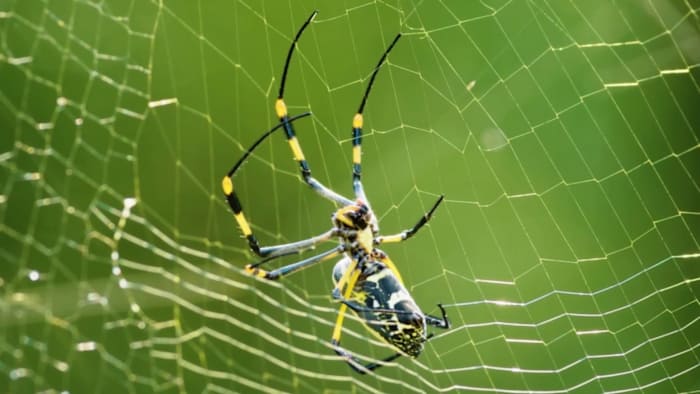ORLANDO, Fla. – Florida is now in the midst of its creepiest time of year: “Spider Season.”
That’s according to Dr. Lisa Taylor, an assistant research scientist for the University of Florida’s Institute of Food and Agricultural Sciences.
Despite the moniker, though, it’s not necessarily that there are more spiders out and about in the Sunshine State. In fact, many spiders typically hatch in the spring, though people may not notice them at the time.
“It feels like spider season because a lot of people are thinking about creepy things when Halloween is coming,” Taylor told News 6. “So we see a lot of spider decorations in stores and out-and-about. And so I think people are just thinking about spiders, and then, they’re noticing spiders that are around.”
[BELOW: Take a look at Florida’s most-hated insect]
That being said, it’s difficult not to notice these creepy-crawlies, as this time of year is also when some of Florida’s more “charismatic” spiders come into their prime.
As Taylor explained, some spiders like golden silk orb-weavers — one of the biggest spiders statewide — become a much more common sight.
A golden silk orb-weaver spider, commonly referred to as a “banana spider” (Florida Fish and Wildlife Conservation Commission)
“They’re kind of small early in the season, and they get bigger and bigger as the summer goes on,” Taylor said. “And then, in the fall, they’re really big… We see a lot of these really big spiders hanging around in October, so that might be part of where this time of year gets the ‘Spider Season’ name.”
And as it gets colder, spiders may start to seek shelter indoors, meaning there are a lot more encounters as the temperature outside drops.
Not to worry, though; Dr. Taylor explained that the vast majority of spiders are completely harmless to humans, so there’s no need to fret.
However, there are a few species of venomous spiders in Florida that may warrant a wide berth if you come across them.
Widow spiders — These include the southern black widow, the northern black widow, the red widow and the brown widow.
(Clockwise from top left) Images of a southern black widow, brown widow, red widow and brown widow egg sacs (Florida Department of Agriculture and Consumer Services)
Recluse spiders — There are two primary brown recluse spiders found in Florida: the Mediterranean recluse and Chilean recluse.
(Clockwise from top left) Close-up of a brown recluse’s eyes; full image of a brown recluse; female Chilean recluse; male Chilean recluse (Florida Department of Agriculture and Consumer Services)
“(Black widows) are really timid, shy spiders… Typically, it’s uncommon for them to bother anybody or to bite,” Dr. Taylor said.
According to state officials, these widow spiders can often be found under structures like sheds or outhouses that have been left alone for a while.
But even then, the spiders rarely bite, usually only doing so when they’re trapped against human skin. Such a bite may cause symptoms like intense pain and nausea, typically lasting around 3-5 days.
Meanwhile, Taylor said that most of Florida is outside the range of brown recluse spiders, making them a rare find, as well. Within Central Florida alone, state officials said that recluse spiders have been located in Orange, Osceola and Polk counties.
Breaking News Alerts
Get breaking news alerts delivered to your inbox.
Copyright 2025 by WKMG ClickOrlando – All rights reserved.

